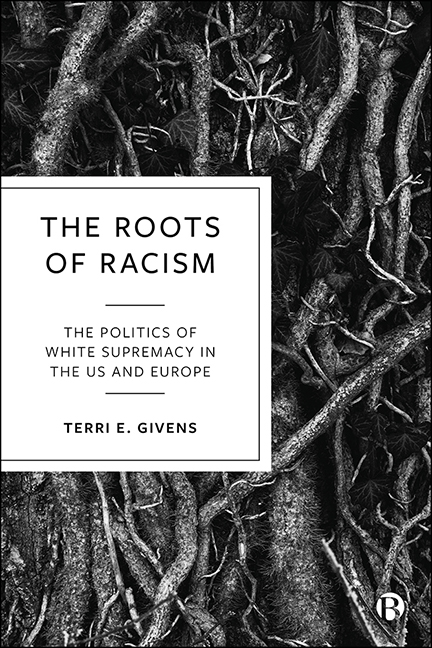Book contents
- Frontmatter
- Dedication
- Contents
- Preface
- 1 Introduction: Structural Racism is the Problem of the 21st Century
- 2 Political Science, International Relations, and the Normalization of White Supremacy
- 3 The Social and Geographical Construction of Race: A Transatlantic History
- 4 Ties that Bind: Slavery and Colonialism
- 5 Post-War Transitions: The Conflation of Immigration and Race
- 6 Immigration, Race, and Citizenship
- 7 From the Civil Rights Movement to Black Lives Matter
- 8 Party Politics, the Radical Right, and Race in the 21st Century
- 9 Elections, Protest, and Insurrection
- 10 Conclusion: Finding a Path Forward
- References
- Index
3 - The Social and Geographical Construction of Race: A Transatlantic History
Published online by Cambridge University Press: 15 September 2022
- Frontmatter
- Dedication
- Contents
- Preface
- 1 Introduction: Structural Racism is the Problem of the 21st Century
- 2 Political Science, International Relations, and the Normalization of White Supremacy
- 3 The Social and Geographical Construction of Race: A Transatlantic History
- 4 Ties that Bind: Slavery and Colonialism
- 5 Post-War Transitions: The Conflation of Immigration and Race
- 6 Immigration, Race, and Citizenship
- 7 From the Civil Rights Movement to Black Lives Matter
- 8 Party Politics, the Radical Right, and Race in the 21st Century
- 9 Elections, Protest, and Insurrection
- 10 Conclusion: Finding a Path Forward
- References
- Index
Summary
In the first decade of the 21st century, many hoped that that election of Barack Obama in the US and the growing political activism of minority communities in Europe was leading to an era of post-racial politics. However, those hopes were dashed as racism showed itself to be resilient with the rise of leaders like Donald Trump, Boris Johnson, and the success of racist, antiimmigrant parties across Europe. Even in 2008, at the time of Obama's first term as president, Howard Winant was arguing that, “far from becoming less politically central, race defines and organizes the world and its future, as it has done for centuries. I challenge the idea that the world, as reflected by the national societies I compare, is moving ‘beyond race’” (Winant, 2008, p 42).
First, it is important to examine what is meant by the term race. As noted in the previous chapter, many disciplines have struggled with defining race as a concept and an issue for research. In a recent example, the American Association of Physical Anthropologists (AAPA) put together a committee to develop a statement to address the concept of race and racism. The authors note in the summary of their statement that:
the Western concept of race must be understood as a classification system that emerged from, and in support of, European colonialism, oppression, and discrimination. It thus does not have its roots in biological reality, but in policies of discrimination. Because of that, over the last five centuries, race has become a social reality that structures societies and how we experience the world. In this regard, race is real, as is racism, and both have real biological consequences. (AAPA, 2019)
The authors point out that race is a social construct, while acknowledging that racism is a very real response to people who are not considered White. In this book, I use a variety of terms to describe those who are impacted by racism, including Black, person of color, immigrant, and under-represented minority. Since this is a comparative study, these terms have different meanings in different countries, and I will attempt to be careful in my use of these terms in this broader context.
- Type
- Chapter
- Information
- The Roots of RacismThe Politics of White Supremacy in the US and Europe, pp. 31 - 46Publisher: Bristol University PressPrint publication year: 2022



